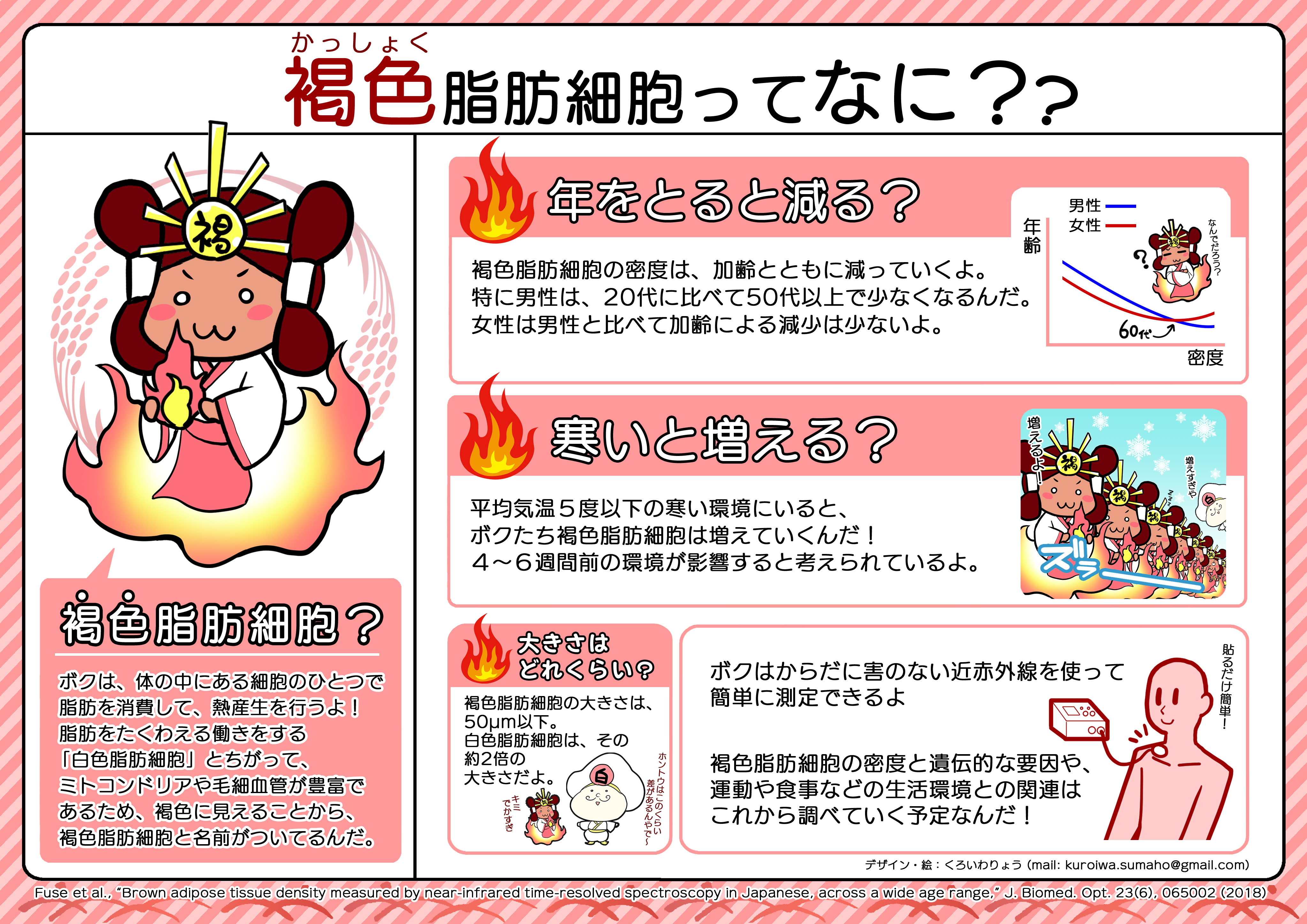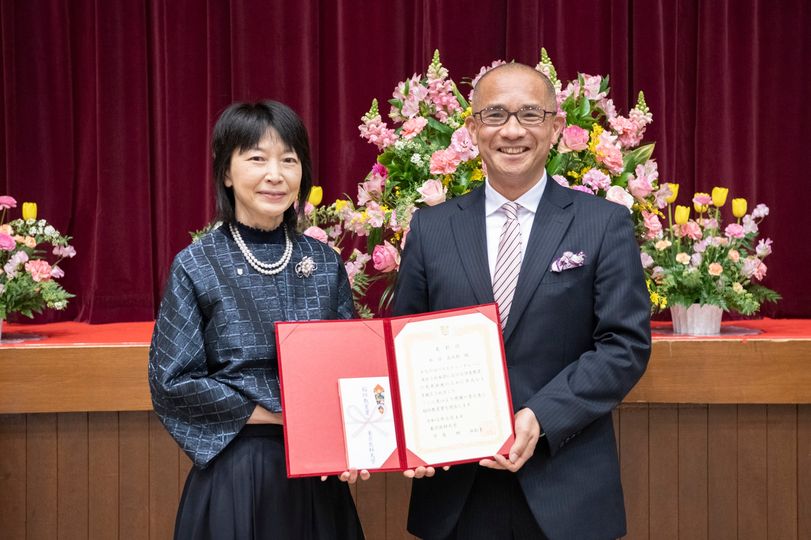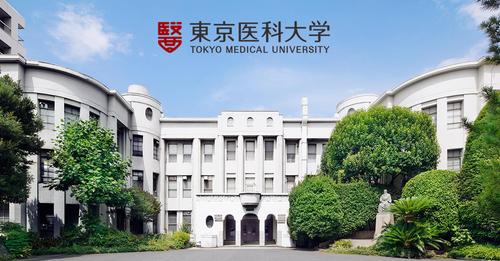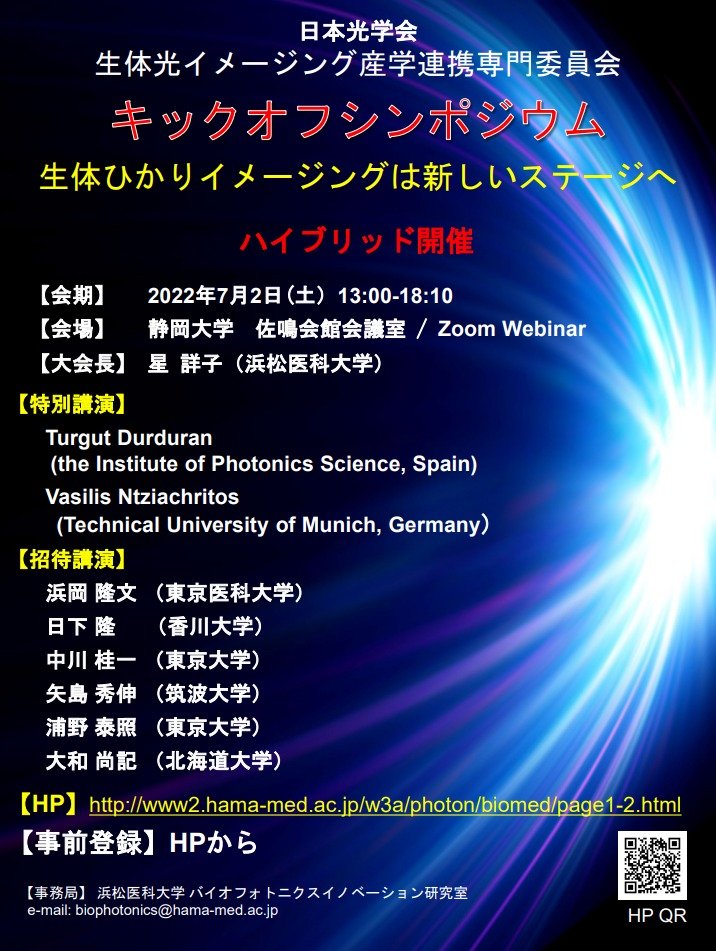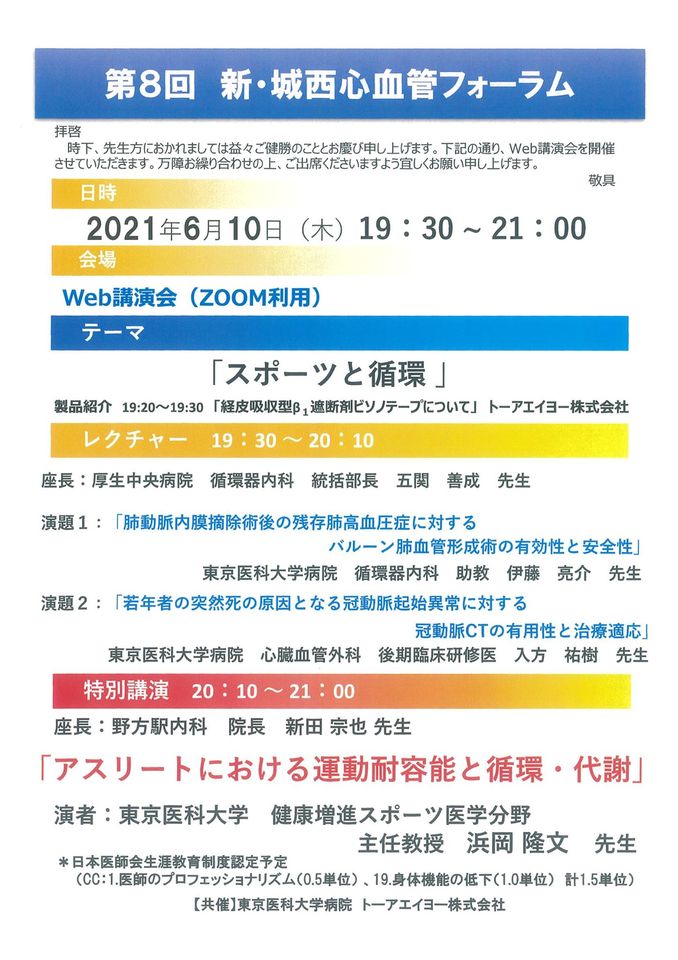ベストティーチャー賞は医学科の学生にアンケートを行い、その評価により選出されます。
Medical School Education
Class Descriptions
Second year
Social Medicine I
Understand prevention of illness, health promotion, environmental health
and food hygiene through medical and social phenomenon for the duration
of the life cycle.
Sports Medicine
Learn the importance of continuous physical activity to prevent not only
lifestyle-related diseases such as high blood pressure, hyperlipidemia,
diabetes and cardiovascular disease but also arteriosclerotic disease and
low physical strength since lacking physical activity is associated with
those diseases and conditions. Understand the effect and importance of
physical activity for health maintenance and promotion as well as the body’s
physiological and biochemical responses.
Third year
Social Medicine II
Learn the connection between medicine and society from a different point
of view from the basic medicine learned in the first two years and how
to apply that knowledge for future health and medical service. Understand
that the goals of social medicine and public health are to manage health
in the entire society to extend life span, prevent illness and promote
a healthy life through a variety of social phenomenon. The class is taught
with recommended textbooks as social medicine covers a wide range of contents,
while supplements, including current statistical analysis, are provided
by slides or other documents.
Fourth year
Independent Research by a group
Students are divided into two groups to examine 1) respiratory and circulation
dynamics during exercise and 2) economy class syndrome using a model experiment.
Each group analyzes and presents the results.
Fifth year
Clinical Laboratory Class for Social Medicine
Clinical lecture for social medicine, practice for epidemiologic index
and care work practice (2 days) and practical training at a public health
center (1 day)
Sixth year (Clinical Training in Social Medicine)
Practice to become doctors with a human touch and creativity to contribute
to society’s development, acquire basic knowledge to comprehensively and
independently resolve medical questions, and master total vision to understand
the mental and social problems behind patients. Develop a fundamental attitude
that helps to lead to accurate self-evaluation.
